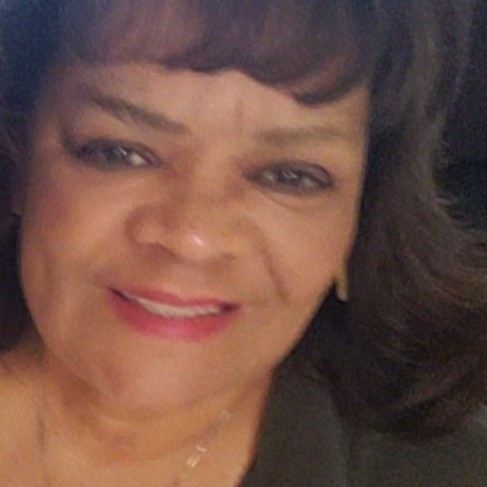
You normally don’t immediately associate capitalism with Pope Francis. As capitalism brushes up against politics, and the Pope being an apolitical spiritualist, for him to endorse a collective of major corporations gains your attention. And that is exactly the case as the Pope is making his support for the Council for Inclusive Capitalism (In-Cap) obvious through audiences, photo-ops and with his words.
In fact, In-Cap was created in response to a challenge from Pope Francis. When speaking to business leaders at the 2016 Fortune-Time Global Forum he stated, “What is required now is not a new social compact in the abstract, but concrete ideas and decisive action which will benefit all people and which will begin to respond to the pressing issues of our day.”
Added the pontiff, “An inclusive capitalism that leaves no one behind, that discards none of our brothers and sisters, is a noble aspiration, worthy of our best effort.”
Inspired by his words, In-Cap founder and co-chair Lynn Forester de Rothschild formed the Council for Inclusive Capitalism to discuss solutions to inequality and climate challenges.
The Council is led by a core group of global leaders, known as “Guardians for Inclusive Capitalism,” who meet annually with Pope Francis. These leaders represent more than $10.5 trillion in assets under management, companies with over $2.1 trillion of market capitalization, and 200 million workers in over 163 countries.
There are 249 businesses participating in the Council representing the pinnacles of the free enterprise system: Dupont, Motorola, Bank of America, Salesforce, Merck, TIAA, Visa and Mastercard, to name a few. Each CEO commits to and publishes measurable goals to advance people, planet, principles of governance and prosperity.
The shared view of capitalism from these world leaders is that it creates multiple opportunities for individuals in society, including producing wealth and innovation, improving the lives of individuals, and giving power to the people. Capitalism at its best!
The Council has as its purpose to remove barriers and create opportunities for wealth for more people, particularly those who have been historically marginalized, starting with women and people of color.
However, the downside to capitalism has always been greed. In 2020, the ratio of CEO to average worker compensation was 351 to 1, up from 61 to 1 in 1989. In a power struggle, continuation of this trend would ultimately bring imbalance to a democracy.
"To address growing inequality and climate change in the 21st century, capitalism must adapt," de Rothschild said. "We need new ideas and bold leadership.”
The challenge for the Council, and the Pope, is to make public the accounting for these “new ideas and bold leadership” so as to ensure the authenticity of what might be considered merely the photo-op of all photo-ops.
To that extent, the Estée Lauder Co. (ELC) represents one company committed to the principles of the Council through its CEO and chairman of the family business, William Lauder. Lauder is one of the “Guardians” of In-Cap, supporting the Council not only through participation, but also acting as consultant to the process and one who is part of the committee meeting with Pope Francis.
A sampling of the 17 commitments ELC has made through the Council includes pledges to spend $10 million through 2023 to support racial and social justice, to reach U.S. population parity for its Black employees for all company levels by 2025, and ensure 75 to 100 percent of ELC’s packaging will be recyclable, refillable, reusable, recycled or recoverable that same year.
There is a dotted-line relationship between ELC, its commitments to In-Cap and the production end of its business as a cosmetics company. However, the same thread of employee consideration and philanthropy exists throughout.
In fiscal 2021, the manufacturing arm of ELC reported that 82 percent of its global workforce is female, and 46 percent of its U.S. workforce is Black, Indigenous and People of Color (BIPOC). Fifty-five percent of global VP positions and above at the company are held by women and 44 percent of the board of directors are women.
Taking to heart de Rothschild’s words — "our moral compass should tell us that we should take better care of the people who take care of us” — it was recently announced that the ELC Cares Employee Relief Fund has distributed more than $10 million to employees globally. The fund was originally created in response to the pandemic; however, it has since been expanded to support employees who are experiencing personal disasters and hardships beyond COVID-19.
ELC’s and In-Cap’s motives, commitment and results appear to be authentic. Measurable results — including numbers, percentages and ratios, dollars and nose count — will continue to be the proof.
Image credit: Aliona & Pasha via Pexels

Gloria Johns' career has included her work as a columnist for Scripps-Howard, Gannett and Tribune News Service. She writes for the San Angelo Standard Times and the West Texas Angelus. Previously she was a special features reporter for San Angelo LIVE! Gloria also has nearly thirty years of award-winning grant writing experience for federal, state and county funds to support social, medical, educational and arts projects. She has enjoyed a successful career in telecommunications and nonprofit management. "Gloria is a Purdue University graduate. She has also attended Angelo State University for graduate courses and studied Texas Family Law at Sam Houston State University. She lives just on the edge of the Chihuahua desert in west Texas.














